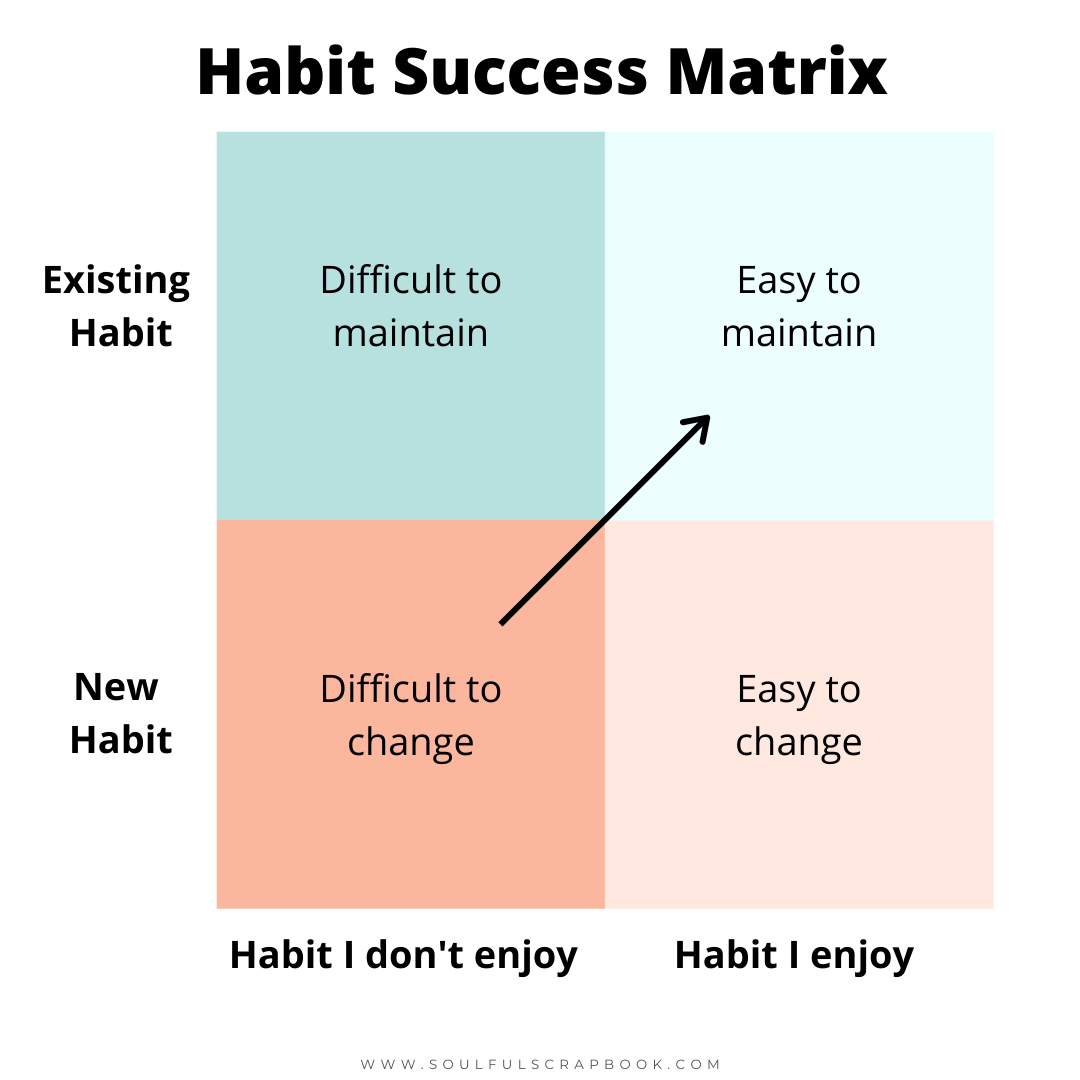Have you heard the myth that it takes 21 days to form a habit? It first came about from anecdotal evidence of patients who had received plastic surgery and psychologically adjusted to their new appearance within around 3 weeks. In reality, the timeframe is much longer, with patterns of behaviour taking more like 10 weeks until they become habitual.
Even if you make it to the 10-week mark, anyone who has tried to create long term changes in their life will know that it isn’t all plain sailing after that. Why are new habits so difficult to create? Here are two big reasons why introducing new habits fails and importantly, what you can do about it.
“I Have The Best Of Intentions To Create New Habits, But It Never Seems To Work Out”

You’re not alone if you find sticking to new habits tricky. January is the stereotypical time of the year where people across the world create intentions for themselves through New Year resolutions in an attempt to establish improved habits to change their lives for the better. But figures show that anywhere between 80-90 per cent will eventually fall back into their old habits – giving you a powerful indication of how challenging it can be to change our behaviour.
Why Are New Habits So Difficult To Create?
If most new habits will fail the question is – why? What are the biggest factors in habits failing to stick, even when we know that something is good for us and we so desperately want to make a change? And what can we do to make creating new habits easier?
Whilst there is likely to be a mix of factors at play, perhaps the 2 biggest reasons that creating new habits fail are:
- You try to change too much too soon
- There isn’t a big enough reward for your new habit
Reason Number 1 Why Habits Fail: You Are Trying To Change Too Much Too Soon

Relying on sheer willpower alone to stick to better habits is setting you up for failure. In fact, research shows that when we attempt too heavily to rely on willpower and overestimate our self-control – that is exactly when we are most likely to fail. That means that the more confident you are that will power alone with see you through, the less likely it will!
Overestimating our capability for change often leads to setting unrealistic and unmaintainable demands upon ourselves. In short: we expect way too much change, way too soon.
If you want to create a long-lasting change in behaviour you are most likely to be successful if you start very small. That means rather than changing several things all at once, it is better to choose just one thing. What is most important to you right now? Focus exclusively on that.
Similarly the bigger the target that you set for yourself, the less likely you are to do it. The bigger the target, the more motivation we need to get started. Dr BJ Fogg in his book ‘Tiny Habits’ suggests that baby steps are the best way to create new habits that last. If you want to do 100 sit-ups a day, start with 5. After a month, increase that to 6. Make your new habit so easy to do, that it feels almost effortless.
Reason Number 2 Why Habits Fail: There’s Not Enough Reward For Changing An Old Habit And Creating A New One.
It’s probably not such a shock to hear that the more you enjoy a habit, the more likely you are to do it. Otherwise, you are relying on willpower – which as we’ve already seen, isn’t a good idea.

As behaviour designer Max Ogles Habit Success Matrix shows, the key to changing and then maintaining a habit lies in enjoyment. Even though you can establish new habits with discipline alone, without pleasure they will be so much harder to keep up.
Studies have shown that there is a direct link between enjoyment and being able to stick to a habit, whereas simply knowing that the habit is good for us doesn’t have an effect. But the problem remains – what if you don’t enjoy your new habit?
If you want to get up earlier, but you like your lie-ins, can you learn to enjoy your new habit? Truly learning to enjoy a new habit may take time and often happens when we start to feel the long term reward that forming a good habit brings.
Those ‘bad habits’ that we find it so easy to develop usually offer us an instant reward. Smoking, drinking, eating junk food – the thing these addictive patterns of behaviour have in common is that they release pleasure hormones (like dopamine) into your system. You enjoy these habits because they give you instant pleasurable feedback. Sadly the healthier habits that we want to cultivate – exercise, better diet, meditation etc. – don’t give us the same instant reward.
Research has shown that if we don’t see or feel the instant reward for our efforts we are more likely to quit. The solution may lie in faking it until you make it. For example, a 2013 study discovered that people who had access to a good audiobook only when they went to the gym were 51% more likely to exercise. Every time you complete your new habit, reward yourself somehow. Do something you enjoy, give yourself a treat, shower yourself with praise.
This article was first published on www.soulfulscrapbook.com.


